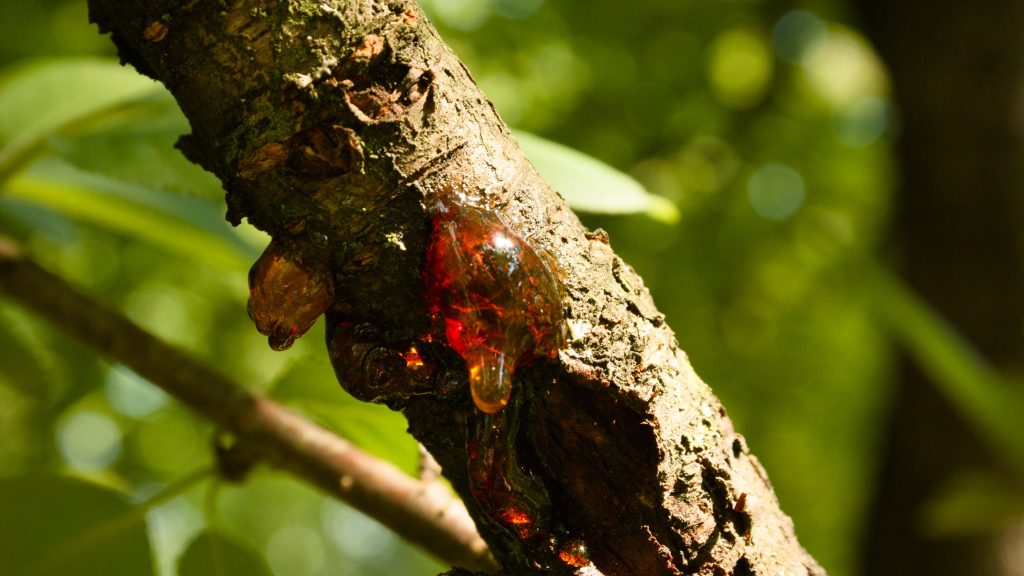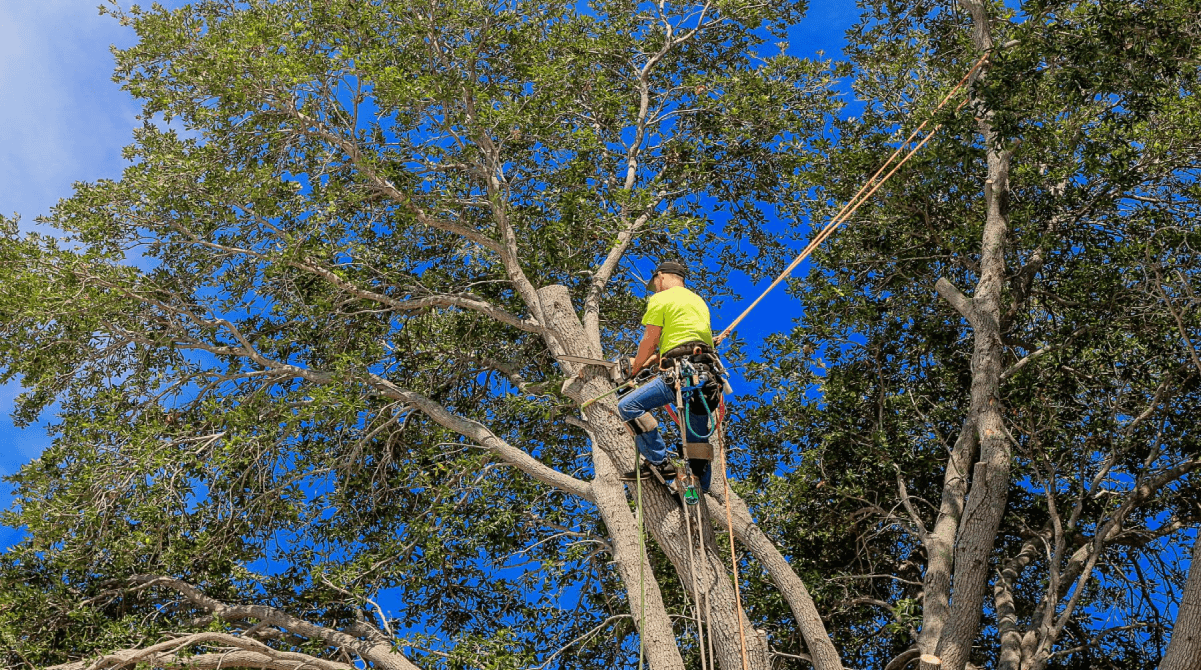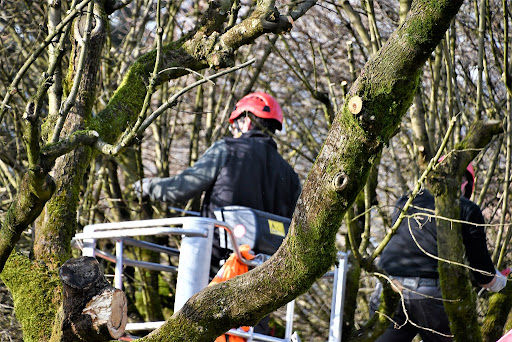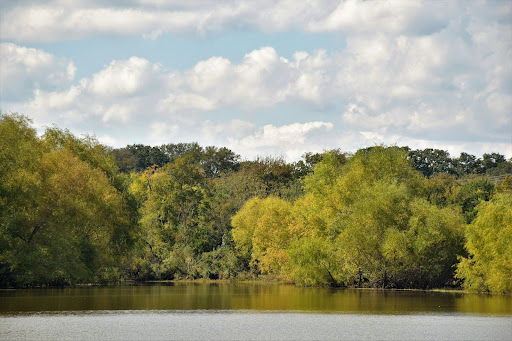
Are the Insects on My Tree Harmful?
Date August 25, 2020
Category
There’s nothing like seeing tree insects on your beloved trees to make you worried about a tree infestation. In fact, seeing tree insects and tree beetles is a common occurrence during the summer months when tree insects are most active. But just because tree insects are present, does it mean you need to treat infested trees? Surprisingly, the answer is not always.
Continue reading to learn more about tree insects such as tree beetles, as well as when you need to treat infested trees with professional insect treatments.
Why Do Tree Insects Infest Trees?
Tree insects, such as tree beetles, tend to infest trees that are already stressed. For example, if your tree has a tree disease such as a fungal infection, it’s more likely to become infested with tree insects.
If you see tree insects in your yard, you should follow a process called Integrated Pest Management (IPM). The goal of IPM is to treat infested trees only when needed using the least invasive measure possible, and to prevent tree insects and tree beetles from infesting trees, to begin with. You should also take measures to prevent tree disease, as tree disease is often a precursor to tree infestations.
What are the Steps of IPM?
There are several steps of IPM that Texas homeowners like you should follow. We’ll detail these steps below.
- Monitor and Identify Tree Insects and Tree Beetles
There’s no way you can prevent all insects from setting up a home on your trees. After all, your trees are outdoors and we do live in Texas!
However, you should monitor your outdoor landscape for problematic tree insects and tree beetles. If you identify tree insects on your property that are known to damage trees through aggressive tree infestations, it’s time you take appropriate measures to treat infested trees.
Examples of tree insects in Texas that can be harmful to your trees include:
- Aphids, which are tiny insects that come in a variety of colors and feed off tree leaves and stems.
- Cankerworms, which are a type of black or green caterpillar that leave holes in and along the edges of your trees’ leaves.
- Japanese tree beetles, which are large tree beetles that feed off canopy leaves and swarm around the top of your trees.
- Eastern tent caterpillars, which are tree insects that are black with a white stripe down the middle that leave large, silky spider webs on your trees.
- Whiteflies, which are tiny insects covered in white wax that cause your tree leaves to yellow.
- Bagworms, which are tree insects made of silk that leave silky webs in your trees.
If you identify any of these tree insects in your yard and on your trees, you need to take appropriate measures to treat infested trees.
- Use Biological Controls to Prevent Tree Insects
Some harmful tree insects can be controlled by introducing their natural predators to your landscape, which aren’t harmful to trees. For example, predators, parasites, pathogens, and tree insect competitors can all help you naturally treat infested trees without the use of any pesticides.
- Use Cultural Controls to Prevent Tree Insects
Another natural solution to treat infested trees is to use cultural controls. Examples of cultural controls include proper irrigation practices. You see, some homeowners inadvertently invite tree insects by overwatering their trees, which introduces weeds and root disease to their outdoor landscape. Conversely, by properly irrigating your trees, you can create an environment in which tree insects and tree beetles are less likely to thrive, and therefore won’t infest your tree.
- Use Mechanical and Physical Controls to Kill Tree Insects and Tree Beetles
If you need a more invasive approach to controlling tree infestations, you can use rodent traps (which are a mechanical control), or tree mulch, steam sterilization, or barriers such as screens to keep insects (and birds) out of your trees.
- Use Chemical Controls As the Last Resort to Kill Tree Insects and Tree Beetles When Necessary
Sometimes you have a dangerous tree insect and you need to use a professional grade treatment to treat infested trees. If that’s the case, make sure that you also use some of the above techniques to prevent tree insects and tree beetles from reappearing after your insect treatment.
Safety Tips for Using Pesticides to Treat Infested Trees
If you do decide you need to use a pesticide, always read the label of any pesticide that you purchase, and make sure to keep it locked up and out of reach of children and pets.
Additionally, when you’re applying pesticides you should ensure they aren’t being sprayed in a way that they will end up in storm drains, creeks, streams, ponds, or other bodies of water on your property or downstream. Pesticides can contaminate waterways and the plant and animal species that live inside them.
Finally, you should never dispose of pesticides using your inside plumbing system, such as pouring them down the kitchen sink or flushing pesticides down the toilet. Instead, store unneeded pesticides in a safe place away from children and pets, look at your local municipality’s website for upcoming household hazardous waste disposal events, and drop off the containers when they are being collected by your city or county.
Contact Us for Professional Pesticide Application
If you need to treat infested trees that are seriously damaged by a pest infestation, we recommend consulting with our ISA Certified Arborists to see what your options are. We will always explore environmentally friendly solutions first, when possible. Sometimes by the time you notice damage, the issue is bigger than a store-bought pesticide treatment can handle.
We’re always available to help you with this need. Whether you’d like us to come to your property to help determine what time of tree insects or tree beetles you have and whether or not they require advanced controls, or you’ve already identified the species that are infesting your tree, we’re here to help. To reach us to schedule a professional tree pest treatment, contact us today at tel:(817) 592-6846.
To learn more about if the insects on your tree are harmful, call our Argyle and Southlake based teams at tel:(817) 592-6846 or send us a message.
We’re a little different than the average tree services company.
Learn more about TreeNewal’s ISA Certified Arborists!
Our Dallas/Fort Worth-based tree doctors can explain how sustainable tree care services add more value to your bottom line.
Healthy trees, healthy lives.








